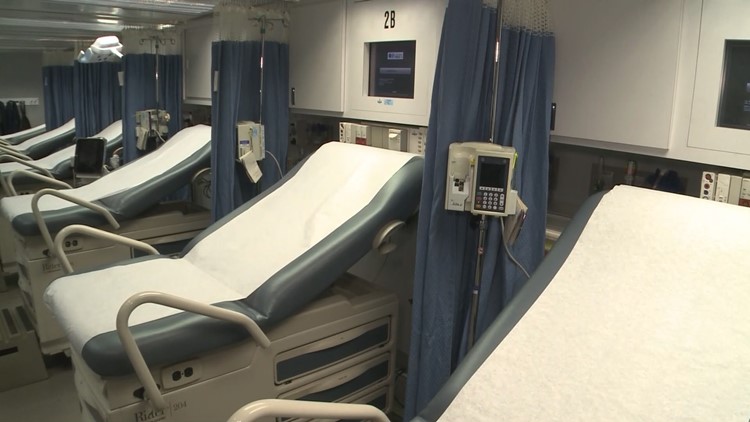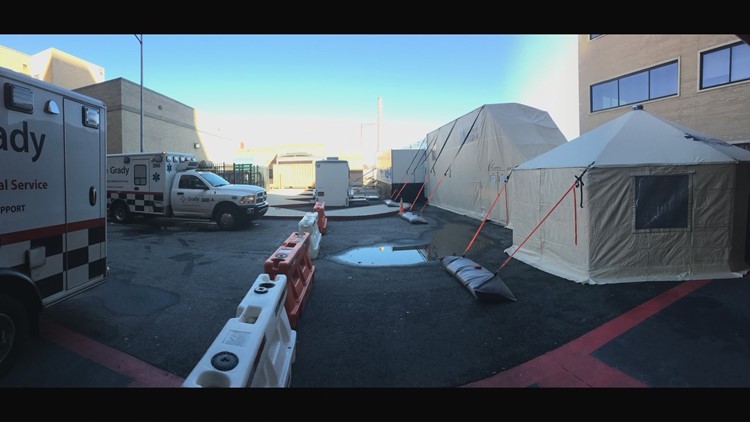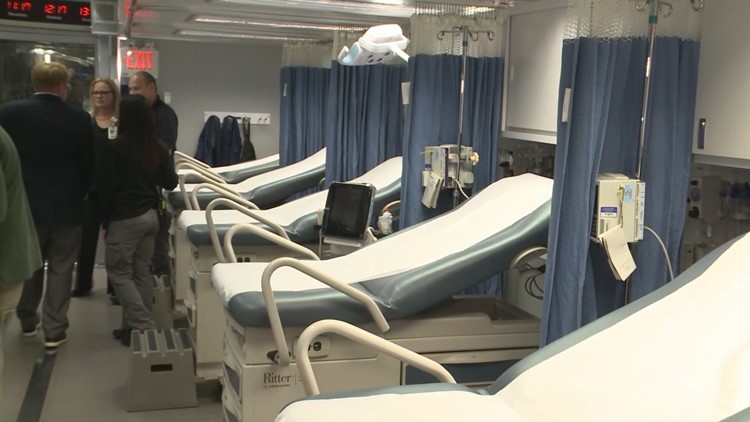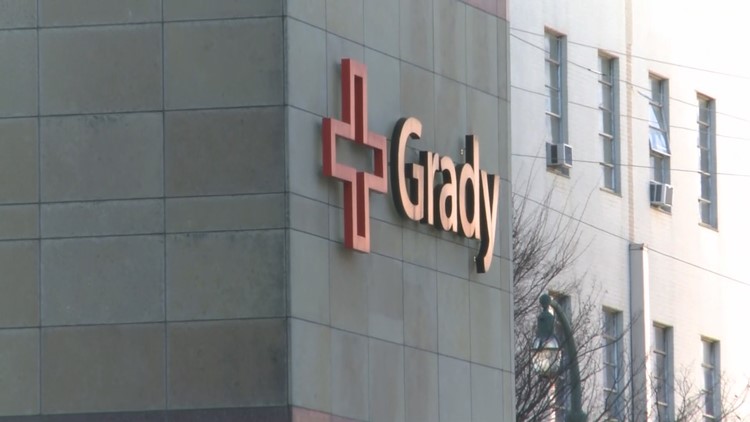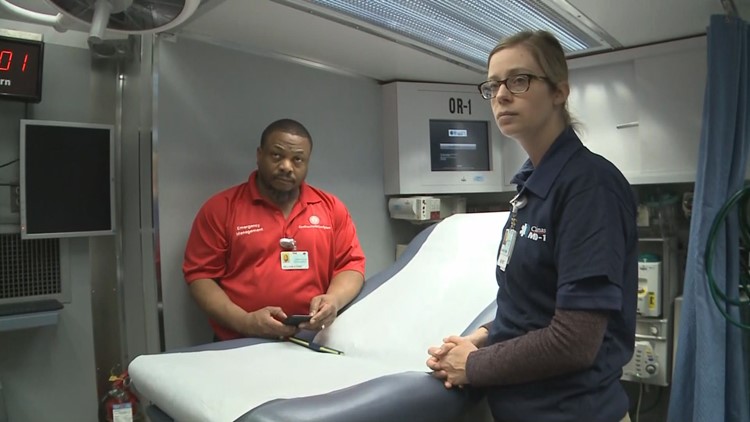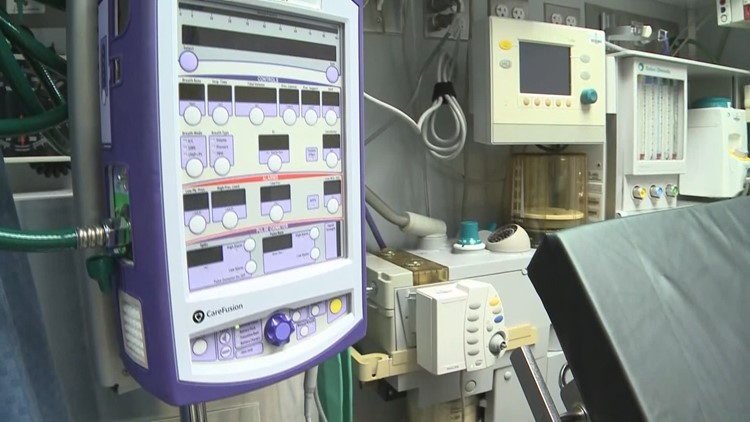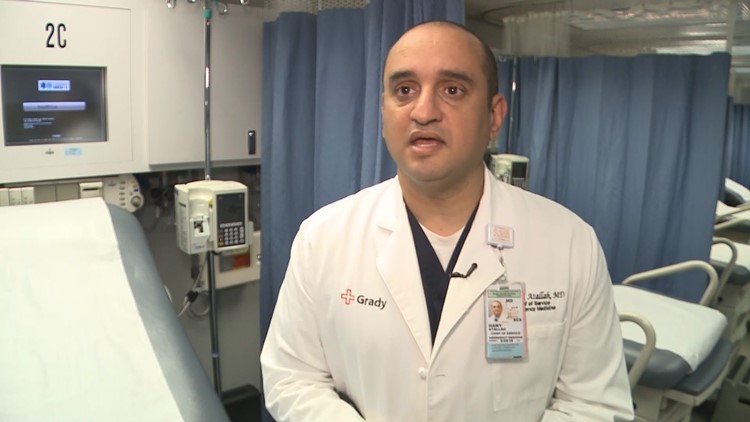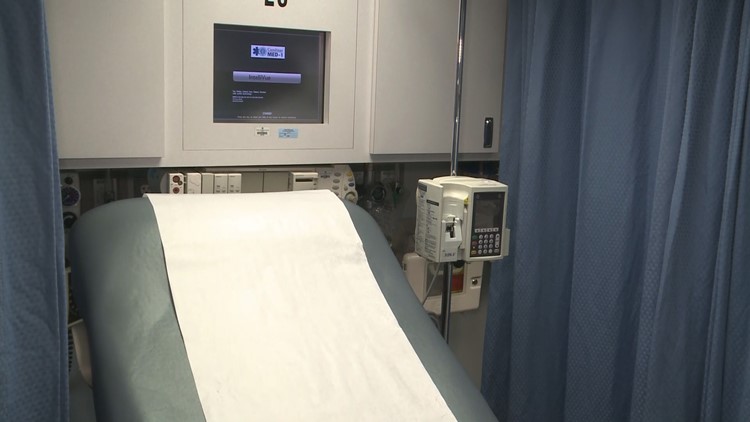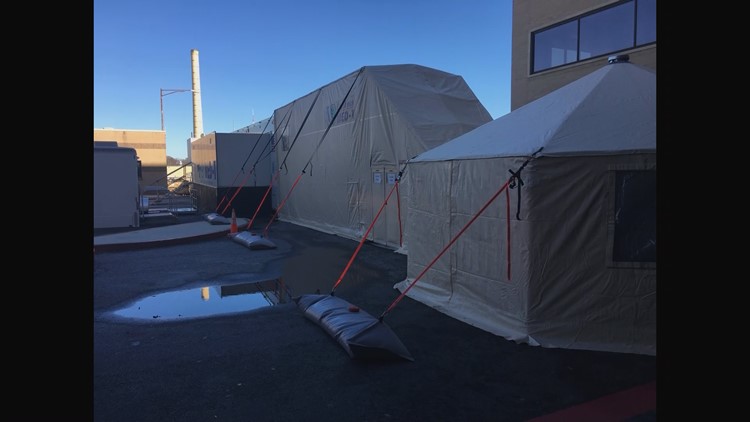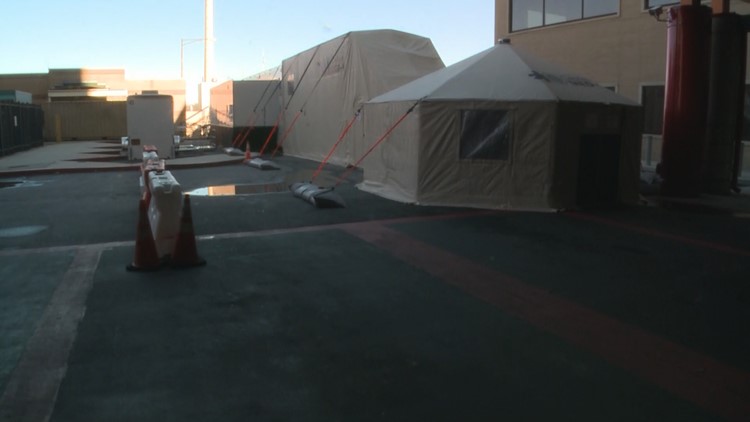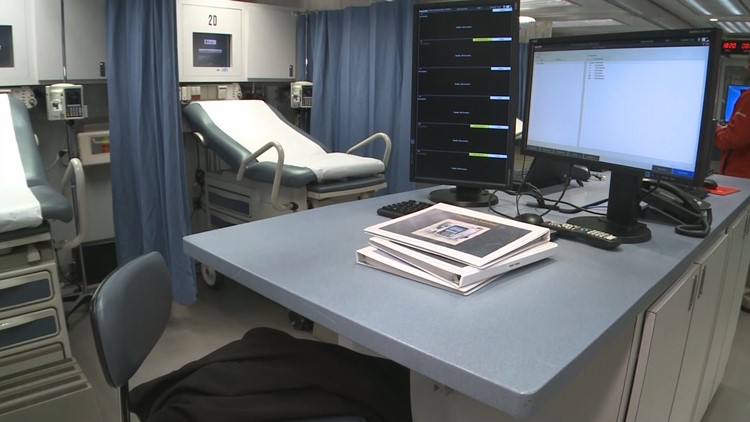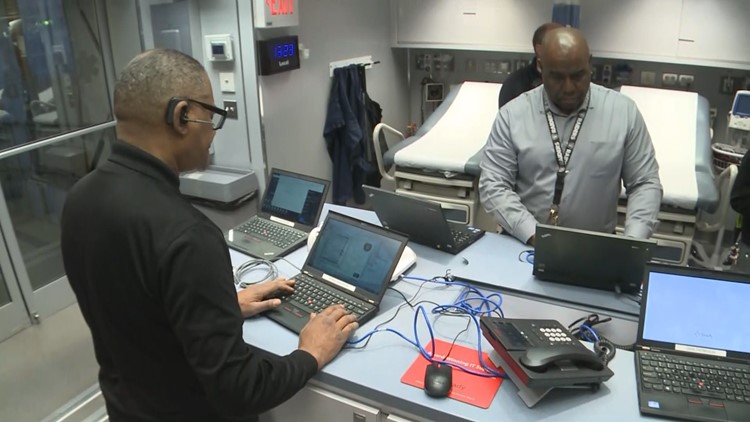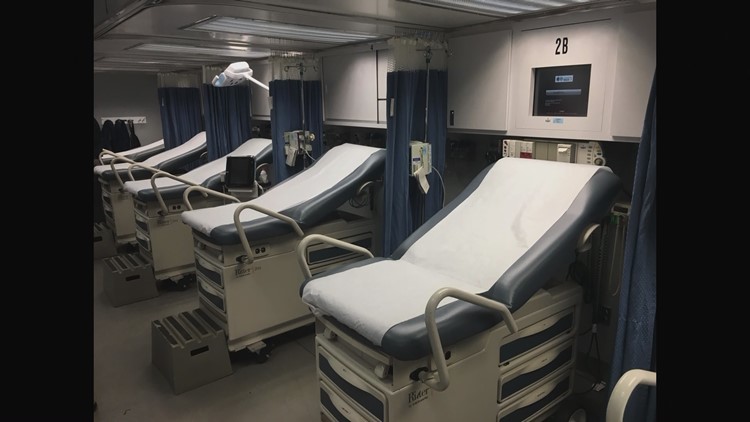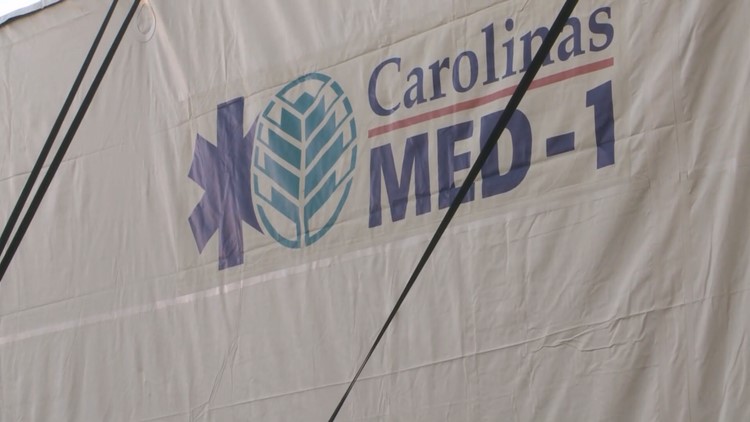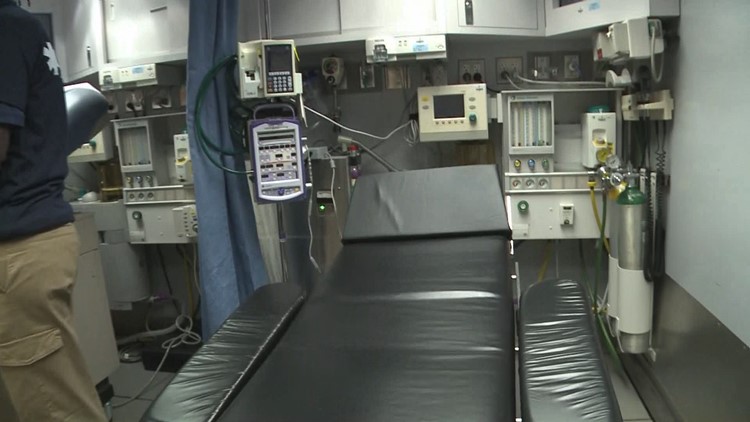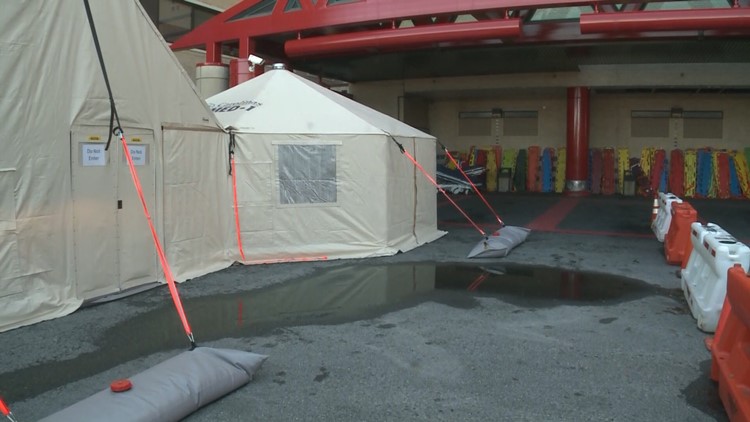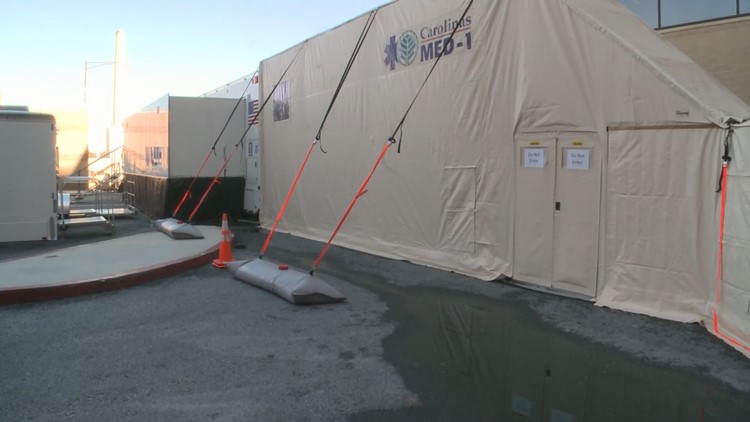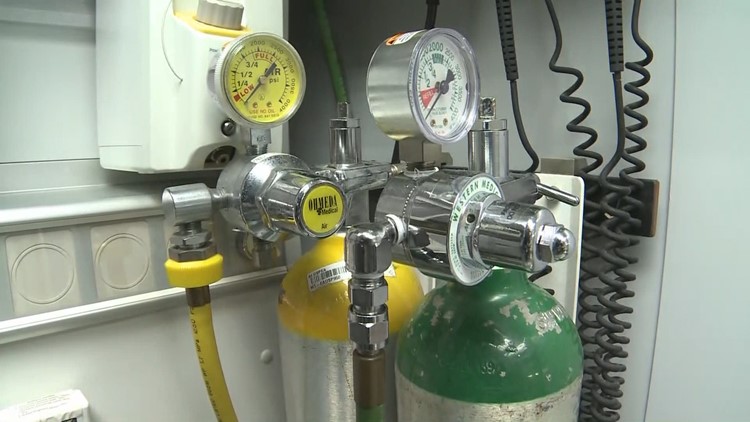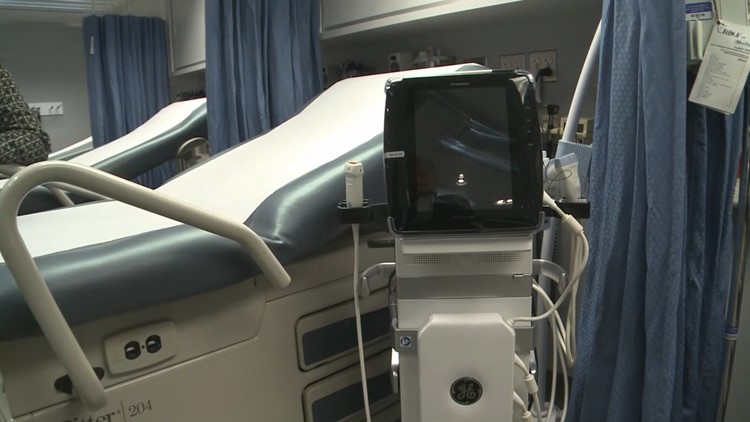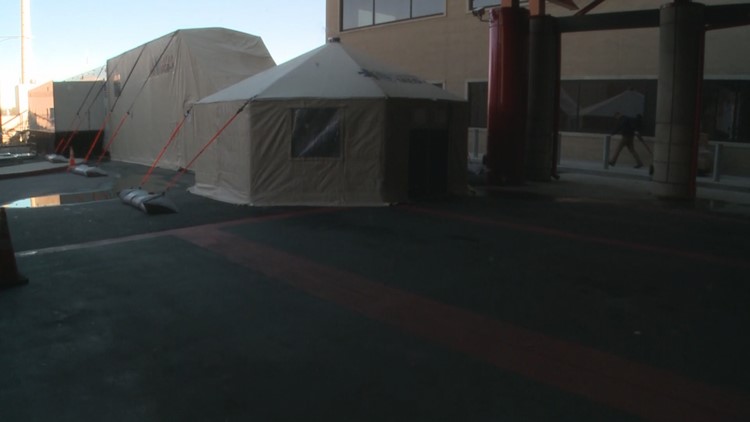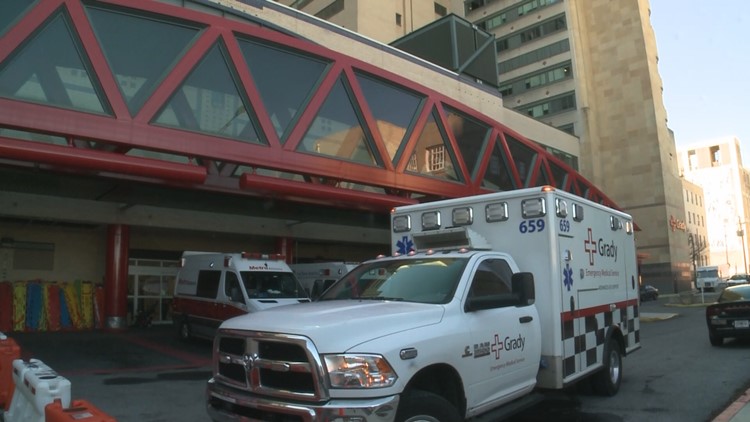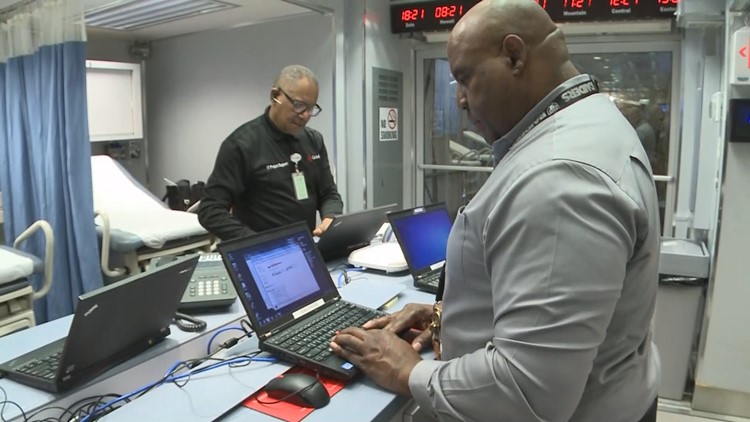There is just no let-up in the big crowds of flu patients jamming Georgia's hospital emergency departments.
Doctors at Grady Memorial Hospital in downtown Atlanta said Wednesday their big, temporary emergency room in the parking lot - set up early last week for the flu crowds - is cutting wait times dramatically.
Doctors working in this mobile emergency department have been able to see about 1,000 flu patients in the first nine days the facility has been here - about a quarter of all of the flu patients jamming Grady's emergency department during that time.
"Nothing seems to be letting up," Dr. Hany Atallah, chief of Grady's Emergency Medicine, said.
Atallah said the 14 additional beds in the temporary, portable emergency room have cut wait times in half for the hundreds of new flu patients arriving at Grady every day.
FLU GUIDE | What you need to know about the 2018 flu season
"In some cases, we've seen as much as a 3-hour drop in wait time," Atallah said. "Our physicians are much more productive. They can see up to about 40 patients in an 8-hour shift."
That is twice as many patients as Grady doctors saw before the portable emergency room was deployed.
PHOTOS | Mobile emergency department added at Grady Hospital for overflow patients
At WellStar Kennestone hospital in Marietta, doctors considered installing a portable emergency room as well. But, so far, they have room for their record numbers of flu patients. There have been more than 1,140 flu patients in Kennestone's emergency department this year through Jan. 26. That's compared to 151 flu patients during the same period in 2017 - an increase of more than seven fold.
Grady is, so far, the only hospital in Georgia using a portable emergency department for flu patients. The 30-day contract for the facilities costs about $200,000 - a bargain says Dr. Atallah.
"It's been very successful for us," he said. "This past Monday we saw, I think it was, 529 patients, which is our second highest day that we've ever had."
Grady will decide later whether to keep the mobile emergency department beyond the initial 30 days of its contract, depending on whether the flu emergency continues or subsides.


